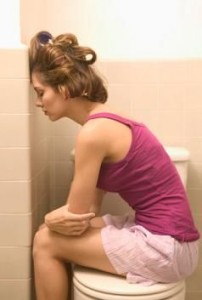A person suffers from urinary retention when he is not able to empty his urinary bladder completely. Inability to release urine results in accumulation of urinary in the urinary bladder. Therefore, the person may suffer from mild to severe pain as the bladder swells up. One of the most common causes of urinary retention in men is the enlargement of the prostate gland.
Disclaimer: the material posted on this blog on urinary retention is for information purposes only. Consult your doctor if you have any questions. To learn basic first aid and CPR enrol in a St Mark James program today.
Risk factors
Some of the risk factors associated with urinary retention are as follows:
- Abdominal injury
- Abnormal bladder or abnormal urethra
- Elderly
- Bladder surgery
- Prostate enlargement
- Prostate cancer
- Herpes genitalis
- Hematuria
- General anesthesia
- Kidney stones
- Spinal cord injury
- Spinal cord tumor
- Spinal stenosis
- Side effects of certain medication such as antihistamine medications, anti-inflammatory medications or anticholinergic medications
- Urethral surgery
- Urethral stricture
- Urinary tract infections
Causes of urinary retention
Common causes of urinary retention include:
- Anxiety and distress
- Bladder stones
- Bladder injury
- Bladder surgery
- Herpes genitalis
- General anesthesia
- Side effects of certain medications
- Prostate enlargement
- Prostate cancer
- Prostatitis
- Spinal cord injury
- Injury to the urethra: genitourinary injury
Signs and symptoms of urinary retention
Common signs and symptoms of urinary retention include:
- Difficulty urinating
- Inability to urinate
- Increased urge to urinate
- Decreased urination – very small amounts of urine is being passed out
- Lower abdominal swelling due to bladder swelling
- Back pain, particularly in the lower back
- Excessive sweating
- Blood or blood clots in the urine
Complications
Complications that may arise as a result of urinary retention include:
- Kidney abscess
- Acute pyelonephritis
- Kidney failure
- Kidney disease
- Urinary tract infection
When to seek medical attention
Seek immediate medical help if any of the symptoms or problems results along with urinary retention:
- You are unable to urinate
- You feel pain while urinating
- Your urine is cloudy
- Your urinary frequency has increased drastically
- You are suffering from hematuria: blood in the urine, blood clots in the urine or red/pink urine
- Your lower abdominal pain is worsening
- Your lower back pain is worsening
- You are suffering from flank pain
- You are suffering from a fever of over 101 F or 38.3 C
Treatment
If you suffer from any of the symptoms of urinary retention, see you doctor immediately.
Treatment usually depends on the underlying cause of the urinary retention.
Initial treatment involves the insertion of the urinary catheter into your bladder. This will drain the urine from the urinary bladder to resolve the symptoms of urinary retention. Your doctor may prescribe medication to treat the condition.
Surgery may be required, depending on the underlying cause, for example, to remove an obstruction in the urethra which is causing the urinary retention.
After getting the necessary treatment, follow these home treatment steps:
- Drink plenty of liquids
- Take medication as directed and prescribed by your health care provider. Avoid skipping doses and familiarize yourself with the common side effects of the prescribed medication
Prevention
Prevention of urinary retention involves the following lifestyle changes:
- Avoid alcohol
- Avoid sedatives and antihistamines in case you have an enlarged prostate
- When you feel the urge to urinate, do not postpone it
- Do not rush when you are in the bathroom, allow your bladder to empty itself completely
Learn More
To learn more about basic first aid and CPR training enrol in St Mark James first aid training (enrol here) with a provider near you.
